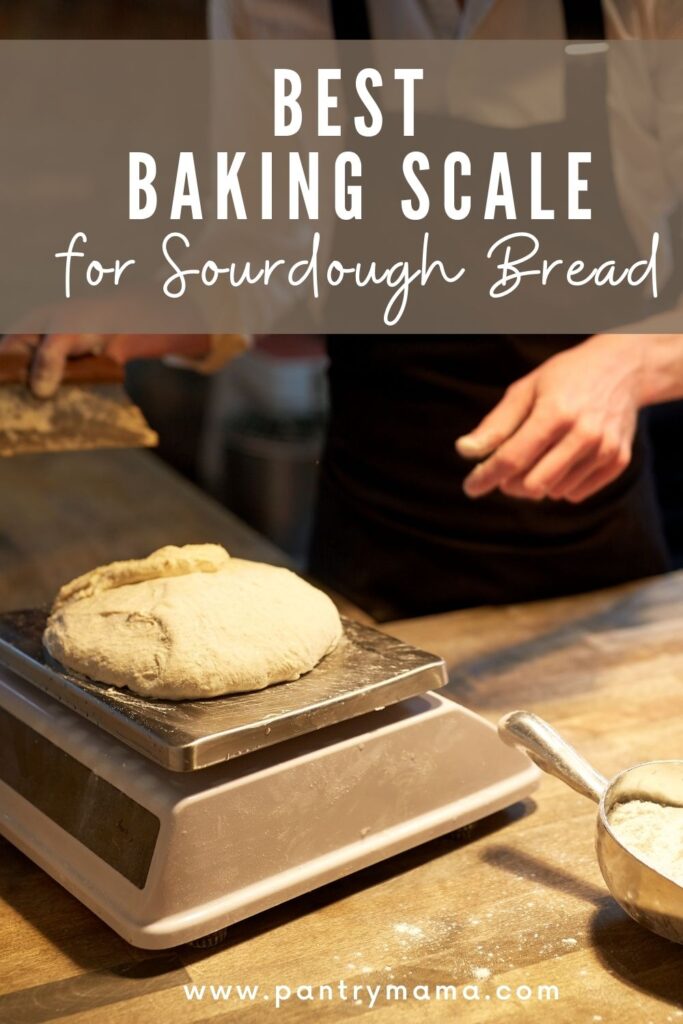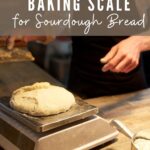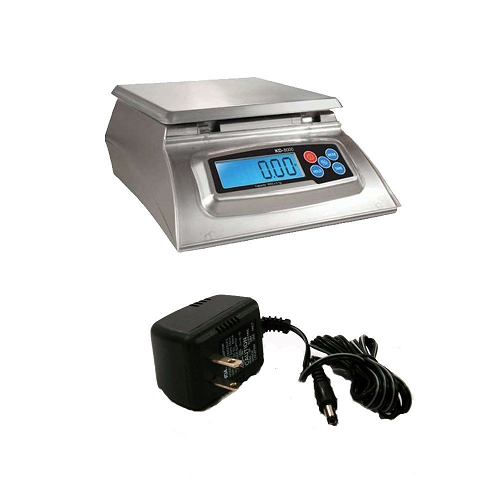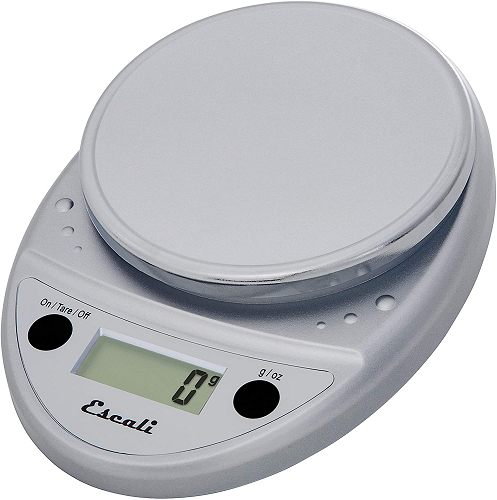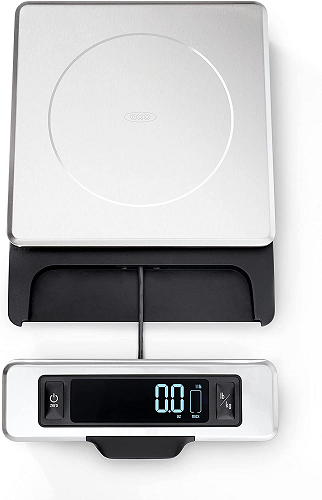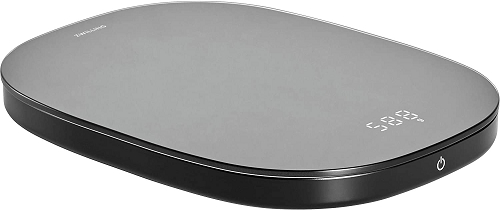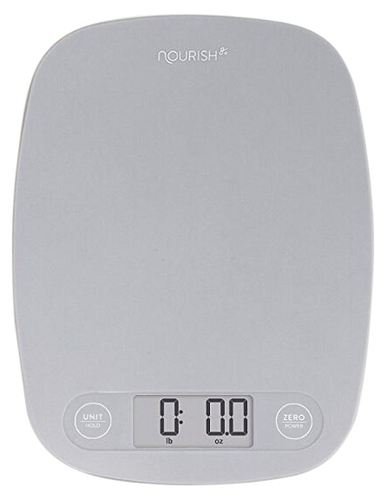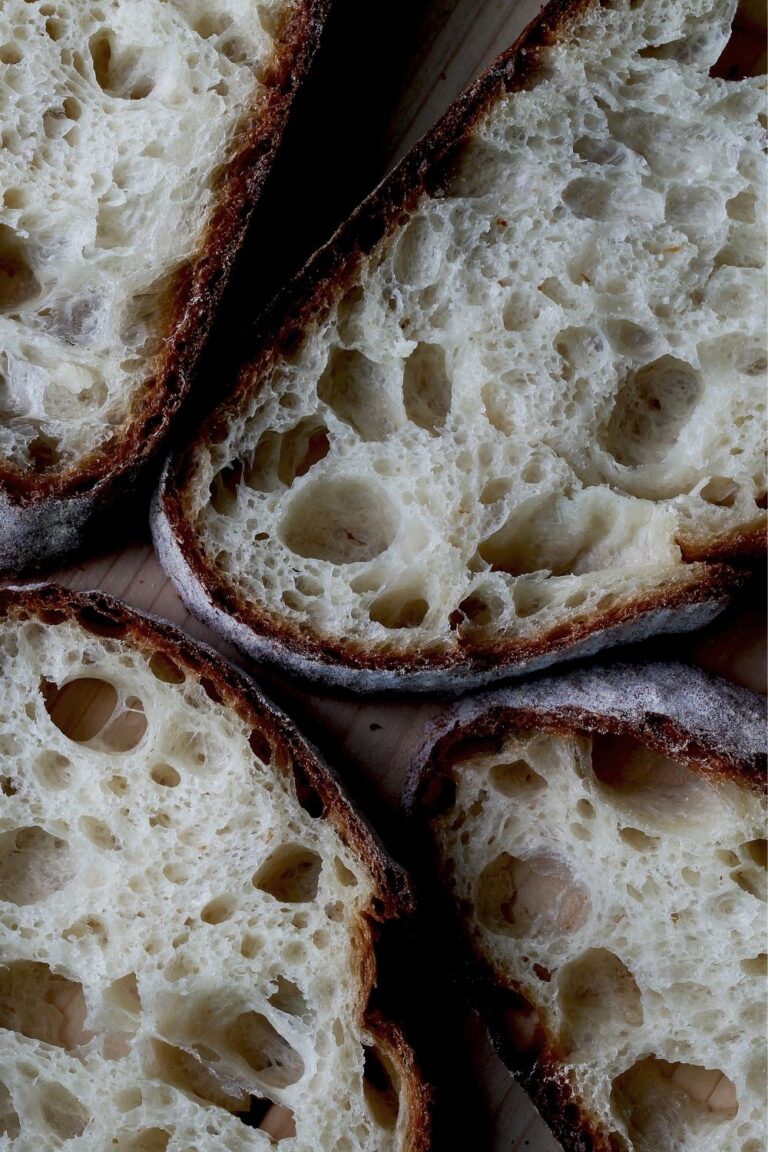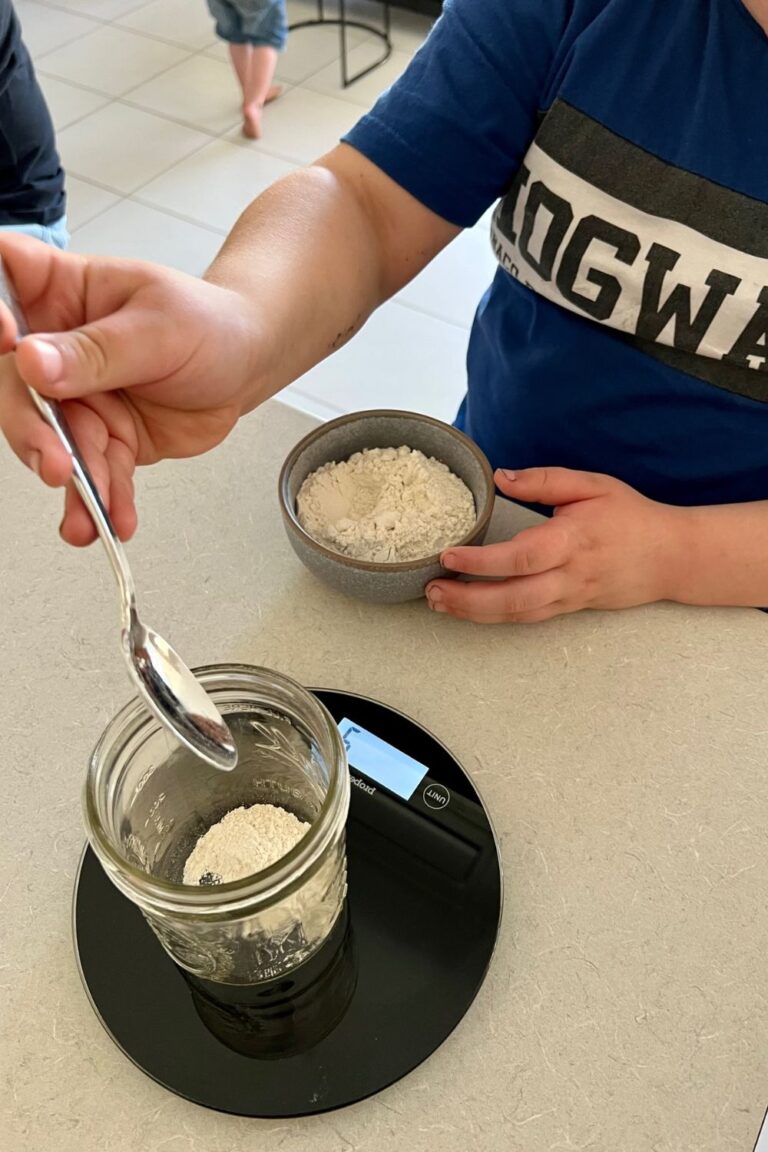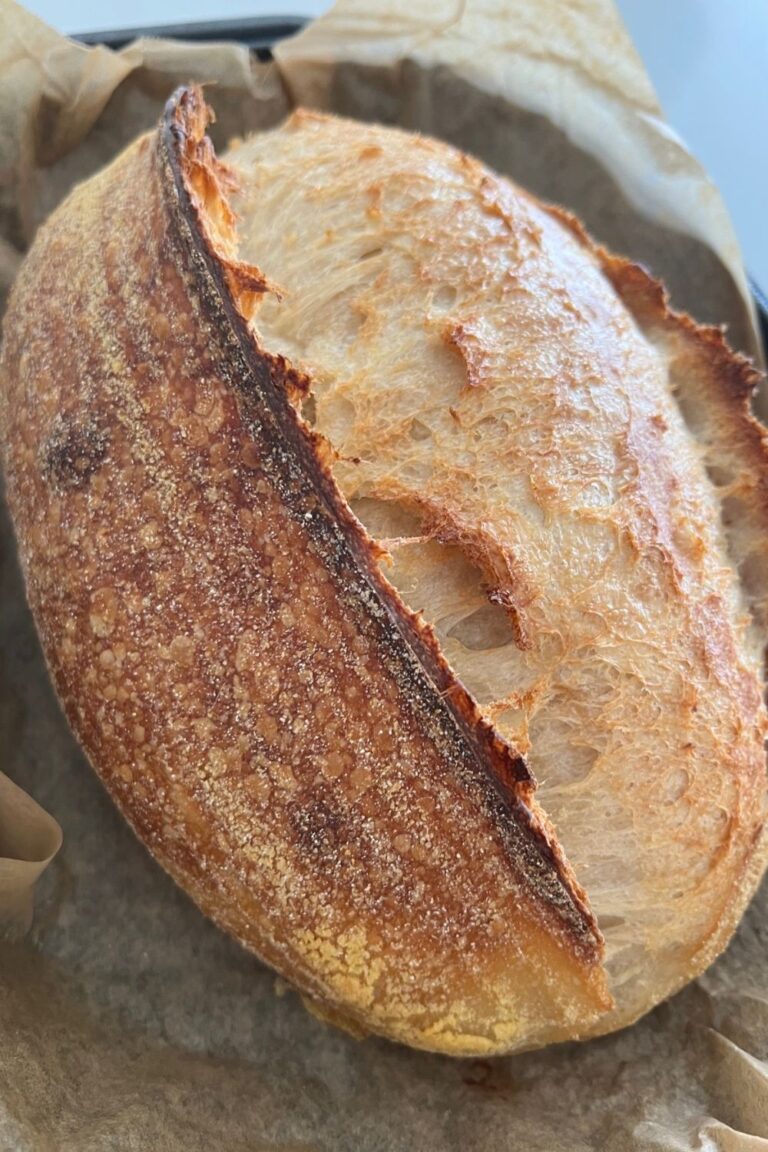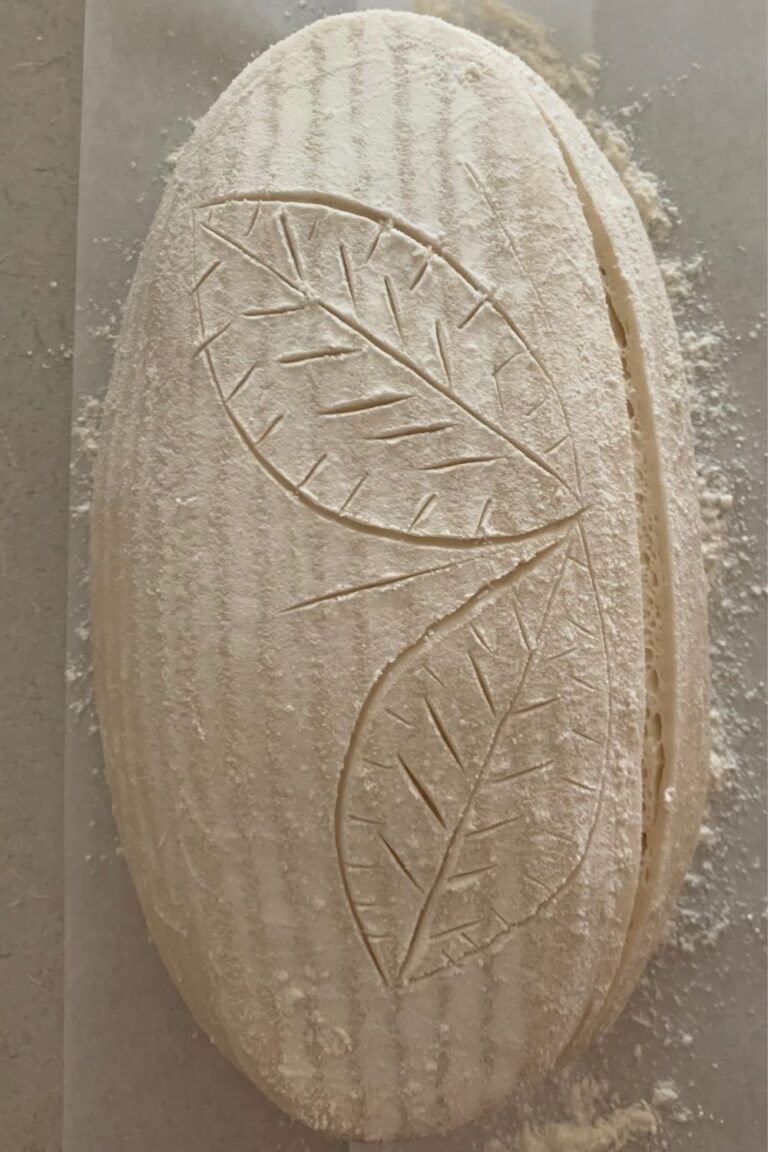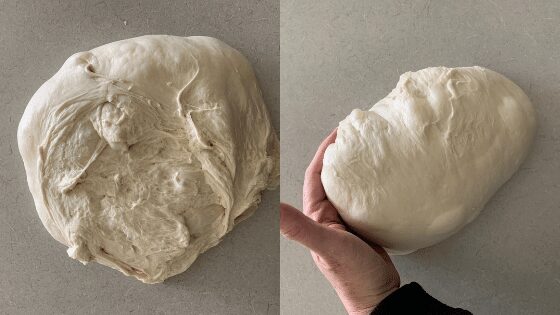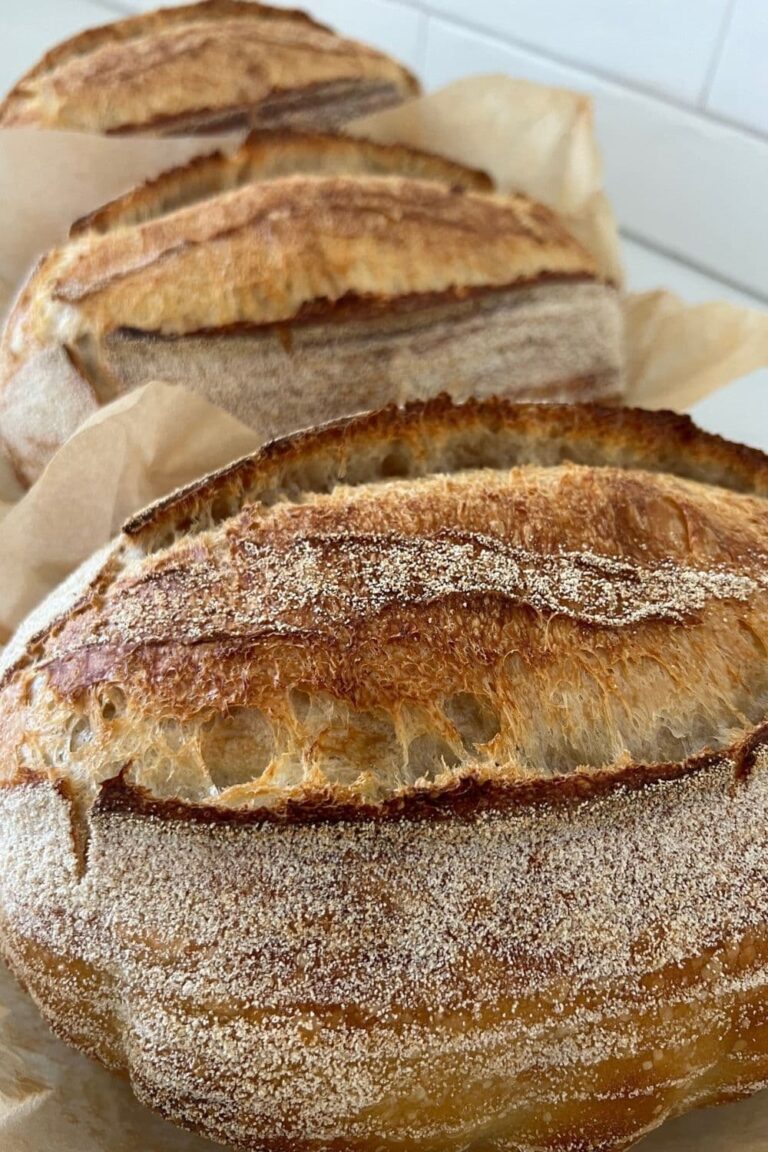Best Baking Scale for Sourdough
This post may contain affiliate links.
Whether you're just starting your sourdough journey or you are looking to take things to the next level, ensuring you have the best baking scale for sourdough is essential.
There are some baking recipes that you have practiced so often you know by the look and feel of the mix that the measurements are just right. There are other recipes where precision is absolutely essential.
Add too much or too little of a single ingredient and the bake can prove to be a disaster.
Macarons can be an exacting bake, on you and your ingredients. Too much egg white or too little almond flour and the whole recipe can be ruined.
The intended ratio of a recipe and its ingredients is a science that requires precise measurements. If you resort to guesswork then you can quickly come unstuck. This is particularly true of sourdough bread.
With the best baking scale, you can have an appliance to truly rely on. They should be accurate so you can produce consistent results that look great and taste magnificent.
Your baking scale could be your trusted ally for beautifully risen bread or an exquisite souffle. When it comes to baking, it definitely helps to be a perfectionist.
Looking for more information on why weighing your sourdough ingredients is so important? Check out this guide to the importance of weighing sourdough ingredients.
Best For Baking Sourdough Bread
My Weigh KD-8000 Kitchen Scale
While you may not realize it, several recipes are proportion-based. If you occasionally struggle with the math then use the My Weigh KD-8000 Kitchen Scale.
Baking bread, cookies, and cake never seemed easier, especially if you wanted to scale batches up or down.
The backlit display is easy to read and has a splash shield for the odd occasion there is a spillage which we liked in our testing.
For a comparatively bulky scale, you may need a large countertop to fit this one in with all your ingredients.
An AC adapter also means that you need to keep it close to a mains socket. However, the removable platform and old-school design were features that may make this a winner in your kitchen.
Pros
- Baker’s Percentage Weighing - Get the correct proportions with flour when baking bread or cakes
- Removable Platform - The stainless steel design is easy to clean anyway but removable too
- Backlit Display - The display features five digits, all the easier to read being backlit
Cons
- Two Minute Auto Shut-Off - Just two minutes may be too quick if you have to search the cupboard for several ingredients
Best For Budget
Escali Primo Digital Scale
For precise bakes, you want a baking scale you can trust that also proves good value for money. The Escali Primo Digital Scale is one of the most precise scales out there.
With an accurate read in 0.05 oz or 1g increments, you can feel confident of your amounts wherever you put an object on the surface.
An auto shut-off feature means you have a long four minutes before the scale switches itself off, more than enough time to nip to the fridge or cupboard.
No matter how messy you can be while measuring; sealed buttons and a hard plastic construction mean easy cleaning.
The tare function will also prove handy as you can reset to zero when adding new ingredients which saves you having to do some quick math. A two-button operation proves simply to use which we liked in our testing.
Pros
- Auto Shut-Off - After a considerable four minutes, the scale will turn itself off
- Sealed Buttons - Added protection against flour spillages
- Range of Colors - Choose from Black, Chrome, Soft White, and Metallic, or go wild with Pumpkin Orange, Royal Blue, Soft Pink, Tarragon Green, and Warm Red
Cons
- Small Platform - There are only three and a half inches from the platform’s center to the display so large bowls can prove problematic
Best For Extended Display
OXO Good Grips 11-Pound Stainless Steel Food Scale
There are few gimmicks to be found with baking scales. Nor should there really be any yet the display on the OXO Good Grips 11-Pound Stainless Steel Food Scale is a helpful bit of innovation.
Being able to view weights in a variety of options can take the pain out of calculating themselves when working with some traditional recipes.
That’s a feature that can prove very useful when doing a large batch.
The display can also be pulled out so you can view the weight even if you have a large plate or bowl, or even a chopping board on top.
A stainless steel construction is ideal for easy cleaning as is the fact that you can remove the platform.
There is the heavy weight and the relatively slow start-up time to deal with yet it does take a handy six minutes to fall into sleep mode.
Pros
- Pull Out Display - Even with a large plate, you can pull out the display to easily see what it weighs
- Stainless Steel Construction - Easy to wipe clean as well as fingerprint and smudge resistant
- Removable Platform - Straightforward cleaning as you can treat the platform separately
- Versatile Display - View weights as pounds and ounces, ounces, kilograms, and grams, or just grams
Cons
- Heavy Weight - At two pounds, this is one of the heaviest scales available
- Slow Start Up Time - It can take three seconds for the scale to start up
Best For Sleek Design
Zwilling Enfinigy Digital Food Scale
You may be prepared to spend more on your baking scale. If cost is no problem then consider the Zwilling Enfinigy Digital Food Scale.
For a glass kitchen scale with a touch screen, this is next-level weighing. Engineered in Germany and designed in Milan, it looks stunning yet comes with great functionality too.
A 22-pound capacity is double that of many other scales while the USB charging is a feature we liked in our testing.
The large weighing surface will also come in handy when using large containers if you have space on your countertop.
Be prepared to pay more and you should be pleased, especially when you do not have to buy replacement batteries.
Pros
- 22-Pound Capacity - For your largest bakes, you can go up to 22 pounds or 10kg
- Sleek Italian Design - This baking scale was designed in Milan by Matteo Thun & Antonio Rodriguez
- USB Charging - A built-in battery uses a USB for rechargingLarge Weighing Surface - The display should still be visible, even when weighing with a large bowl
Cons
- Large Price Tag - For the modern kitchen, the design will look great though does come at a large price
Best For Small Countertops
GreaterGoods Digital Kitchen Scale
Not every baker is blessed with a large countertop to arrange all of their ingredients.
For those with only a limited space to work from, choose the GreaterGoods Digital Kitchen Scale.
At only half an inch thick and just over eight inches in length, this can take pride of place when baking yet be easily stored.
The minimal design also comes in a range of colors if you want to make a splash to match your decor. With a weight capacity of 11 pounds, that may be less than some scales yet works well considering the size.
The zero feature also takes the stress out of adding ingredients which we liked in our testing.
Pros
- Minimal Design - Easy storage and a limited size that is ideal for smaller countertops at only nine inches in length
- Zero Feature - Add your ingredients from zero so no need to do the math yourself
- Range of Colors - The sleek design can come in a wide variety of colors including Mint Green, Blush Pink, Cobalt Blue, and Cherry Red
Cons
- 11-Pound Capacity - You would expect a small capacity with such a nifty scale
Also available directly from GreaterGoods
Buyers Guide for Baking Scales
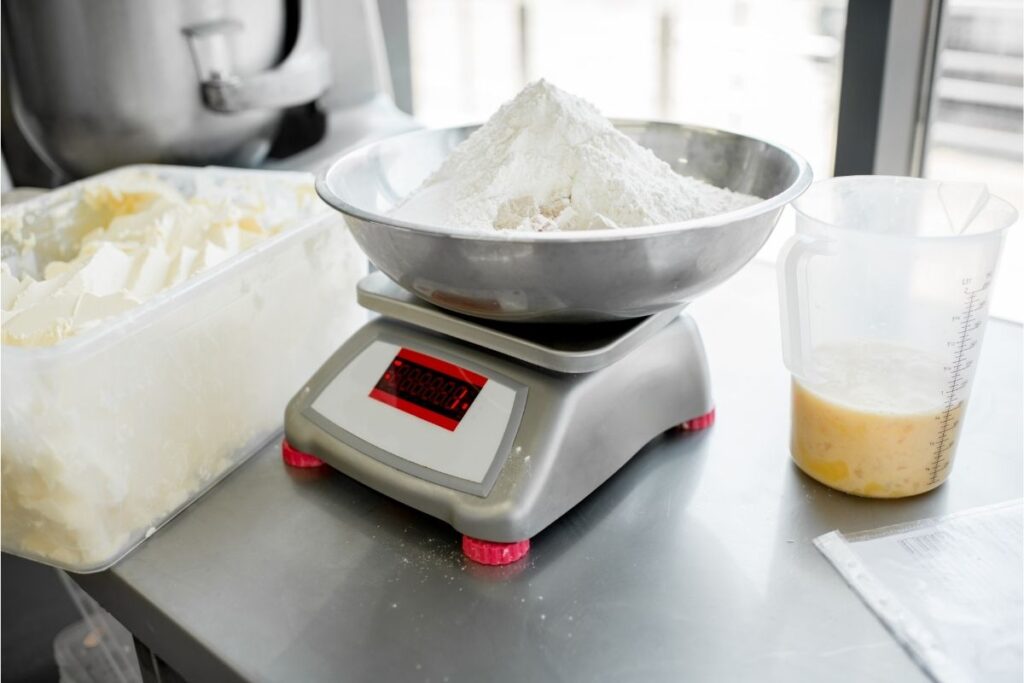
When you opt for a baking scale, the primary consideration is its accuracy. After all, if it cannot get your ingredients measured properly it is not worth an investment.
There are handy functions that can make your baking even easier. From a tare button to reset to zero after each ingredient to a versatile display where you can decide on how units are measured.
The weight capacity and platform size are also features to consider, especially if you opt for scaling up a familiar recipe.
If you happen to be relatively disorganized with your ingredients then knowing that your scale will still be on after four to six minutes can be really comforting.
We should all want our kitchens to be clean so having sealed buttons and removable parts are great for easy cleaning.
Accuracy
The prime requirement for any scale is to accurately measure your ingredients. Whether you are an amateur baker or a seasoned professional, your measuring cups will only go so far.
Get your proportions and your measurements exactly right with a scale that can go within a single gram.
For ingredients such as egg white, baking powder, and yeast, ensuring you have the ingredient down to the right gram can make a considerable difference.
The scale should also be quick to respond to save you from having to pull out a couple of grams of the most vital ingredient, especially if it is on top of other ingredients.
You need to get it right and your scale should promptly tell you when you have gone over. If the scale is not completely accurate, your finished bake will not be wholly true to the recipe either.
Baker’s Percentages
A specific feature that is particularly helpful to bakers is the ability to weigh in baker’s percentages. Most recipes use flour as the main ingredient and now you can ensure that your ratios are bang on exact.
The functionality to measure by ratios can make it so much easier to scale your recipes up or down.
Having a scale that allows you to calculate baker's percentages is a big advantage when baking sourdough bread.
Auto Shut Off
For baking on the fly, you want a scale that can remain on while you search for ingredients. Some designs can give you a full six minutes while you rummage through the cupboard.
However, two minutes might set you into panic mode while you try to source out the wholewheat flour from the top shelf.
Advanced models even have memory built-in which can be really handy. Let’s say you have run out of sugar and have to nip to a neighbor’s house.
If the scale can switch to standby mode for half an hour then that may be enough time to save you having to weigh it all again. Baking should not be hugely stressful and if your scale can remain on, you can take your time.
Interface
Your scale should be easy to use as some real skill can come with what you do with the ingredients, not their weighing. That means a backlit display and ideally only a couple of buttons to get all the functionality you need.
The fewer controls the better in most cases as you may only want to switch measurement units, reset the weight or turn it off and on.
Sealed buttons are also easier to clean and a responsive display or even a touchscreen can be a bonus when your hands are covered in flour.
Weight Capacity
For large batches, you may have to compromise size for weight. Scales with larger pads tend to have larger weight capacities with some going up to 22 pounds.
However, a svelter design may only have a capacity of six to 11 pounds which may be more than enough.
You may have to be careful with some models as the tare button doubles up as the on/off button and you really do not want to turn it off.
Measurement Conversion
Knowing that recipes can come in a variety of units, having the ability to switch between pounds and ounces to grams and kilograms should not be underestimated.
Especially if you have several cooking books from around the world. That recipe passed down generations can be recreated so much easier if you use the very same units that have been noted down.
Try to consider whether you prefer decimal points or fractions in your measurements. Though decimal points do tend to be more accurate, certain old-fashioned recipes rely on fractions instead.
Another handy feature is how the units are displayed. Some models can display the units in several combinations.
Perhaps you prefer to work with grams alone, being able to then display the same amount in kilograms and grams is handy.
Doing the same with ounces and pounds can save you from having to get a calculator out.
Tare/Zero Functionality
Granted, you may need to use two separate bowls for wet and dry ingredients. To save yourself the washing up, the tare (or zero) function can become really useful.
Having weighed out all your flour the recipe may call for many other ingredients at specific measurements.
Being able to use the tare button to reset to zero after each one means you can weigh each ingredient separately and get it right every time.
It becomes so much easier to get into the habit of measuring, pressing tare to zero, measuring, and so on.
Platform Size
The platform size really comes into play when you scale a recipe up or down. If you are known to make large batches of the same recipe then have a platform size that goes further than ten inches.
At that size, you should still be able to see the display even when a large plate is perched on the scale. Anything less than six inches and you may be struggling.
Easy Cleaning
If you use your scale for working with raw products, particularly meat, you may want one with a removable tray. Knowing that you can give part of your scale a deep, hygienic clean is great for peace of mind.
When you do have to wipe away spillages, you should only need to use warm soapy water and a towel. Stainless steel tends to be easier to clean and remains fingerprint and grease resistant.
Are Digital Scales Better Than Analog Ones?
For accuracy, you really should be introducing the latest technology into your kitchen. That means a digital scale that can measure in 1g increments.
As recipes become more sophisticated, you can expect to see more exact measurements. If you do not want to squint at your analog scales and worry you might be a couple of grams out, get a digital scale.
Is A Baking Scale Worth It?
Absolutely! A baking scale is one of the best investments you can make in your sourdough journey - and in fact it's essential for yeasted bread baking too!
Baking is a science and measuring by volume may mean inaccurate results. If you decide to bake a tricky souffle, being a couple of grams out on certain ingredients can prove disastrous. It's the same for sourdough.
A baking scale is worth it to get a precise measurement, the proof is in the pudding. Or in your bubbly starter and perfectly risen loaf of sourdough!
